At the epicenter of collapse and community
Signs of grief, belonging and resistance in the DC area
Edited August 14, 2025: Since I wrote this piece in mid-July about living in the DC area, conditions have drastically changed. In August, President Trump invoked Section 740 of the Home Rule Act—declaring a “crime emergency” in Washington—and placed the D.C. police department under temporary federal authority (for 30 days). This move brings 800 National Guard members and federal agents into the city - even as violent crime remains near a 30-year low. DC’s police chief issued a departmental order allowing officers to collaborate with ICE—even during routine traffic stops. Meanwhile, the Trump Administration continued its ideological overhaul of the Smithsonian, directing that exhibits reflect a brand of “Americanism” - effectively producing a sanitized retelling of U.S. history.
Local advocacy groups are sounding alarms about the sweeping federal and local enforcement changes in D.C. CASA has issued a “Red Alert” to Black, Brown, immigrant, and Latine residents, warning of intensified ICE raids and military-style policing in neighborhoods. Free DC and Muslims for Just Futures are mobilizing community defense and solidarity efforts, and providing trainings to support young people and marginalized community members. The ACLU of D.C. is reminding people of their rights during police, ICE, or FBI stops. Please check out and share the resources.
After living in the DC area for two decades, I didn’t expect that a deeper sense of belonging would arrive now - against the backdrop of a fraying democracy. And yet, that’s exactly what I’ve been noticing in myself and others.
The DMV – Washington, DC and the areas surrounding it in Maryland and Virginia - can often feel insular and transient. Life here is shaped by federal rhythms, and can often seem transactional and disconnected, overshadowing the experiences, vibrancy, and needs of local communities in the area. But lately, the DC area feels less like a distant capitol city - and more like the epicenter of a democracy in collapse. Those of us with proximity to the DC area are living at the point of direct impact with front-row seats to the deepening cracks spreading across the country.
When I travel outside of the DC area, I often feel disoriented, as though I’m in a new country almost. Elsewhere, life moves on, even though there is the undercurrent that something is amiss. In Los Angeles, I spoke with community members who criticized the response of the federal government to the wildfires. Staff at a community college I visited in Portland were concerned with the potential loss of federal funds. In Louisville, Kentucky, residents were stunned by the Department of Justice’s recommendation that a police officer involved in the murder of Breonna Taylor should receive a day-long sentence.
But here in the DMV, the undercurrents aren’t abstract or hidden or isolated. They are constant, connected, and impossible to ignore.
When the Political Becomes Personal
While many people around the country are experiencing political grief in unique ways, it feels even more personal and palpable here. The DMV has the highest proportion of the federal workforce; in Maryland alone, 1 out of 10 workers is employed by the federal government. But these aren’t just statistics. These are our neighbors who have lost jobs at the Department of Education, the Department of Veteran Affairs, health centers, and the Internal Revenue Service. These are our kids who don’t have the same pathways to public service as before. These are our friends at nonprofits facing investigations and attacks from the Administration and Congress. And, these are our immigrant and refugee neighbors from Afghanistan, El Salvador, India and Ethiopia who made the DMV their home and are now deeply worried about their futures.
The signs of erosion are also appearing in places that give the DC area its reputation for art, culture, and protest. It was devastating to witness the erasure of the street mural at Black Lives Matter Plaza, born from the 2020 uprisings after George Floyd’s murder and a site of solidarity for Palestinian human rights, immigrants, and anti-war movements. Beloved institutions like the Smithsonian museums, the Kennedy Center, and NPR—pillars of cultural and public life in DC—are facing threats of defunding and political censorship. Locally, food banks such as Manna Food Center and arts groups like Music for Life, which provides free after-school classes for at-risk youth, are navigating withdrawals and cuts of federal funds. The Administration has also threatened to exert federal control over DC and announced a “DC Safe and Beautiful Taskforce” which many say is a way to target the homeless and immigrants.
Recently, I was in touch with a group of Asian American lawyers, organizers, and advocates who, like me, had all descended on Washington, DC in the early 2000s. We began working at Asian American nonprofit groups, on Capitol Hill, and in government agencies with a shared goal: to ensure that federal programs, policies, and legislation no longer ignored the experiences of Asian American and Pacific Islander communities. We moved fluidly between nonprofits and government, carrying knowledge and relationships back and forth in service of our communities.
Thanks in part to the work of AAPI federal employees and nonprofit staff over the past two decades, key infrastructure emerged, from the White House Initiative on Asian Americans and Pacific Islanders to representation on the Census Bureau’s National Advisory Committee to federal interagency working groups that addressed post 9/11 backlash and language access needs. For many of us who had our fingerprints on these efforts, it has been painful to watch them being dismantled, eliminated, revoked and rescinded.
It feels as if decades of work have vanished. For many of us, the questions linger: Did it matter? Can the impact survive erasure? How do our communities absorb the abandonment and failure of systems meant to support them?
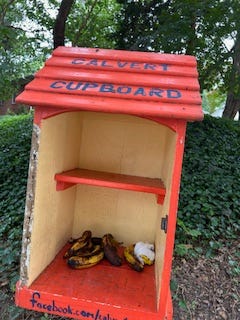
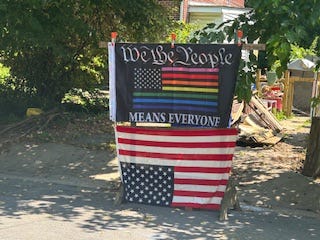
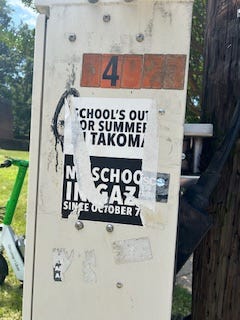
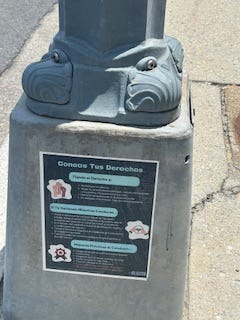
We Are Not Bystanders
And yet, despite all this—perhaps because of all this—people across the DMV are not bystanders or passive witnesses. We are taking action.
» Healers are opening up spaces for acknowledging grief, rage and despair: An example is the Rejuvenation Space for rest and fortification at the Festival Center in Washington, DC.
»Caregivers are providing support to federal workers: Companies are providing discounted services for financial planning and job searches; leadership coaches are offering pro bono consultations; and neighbors are organizing grocery runs. Even local government is responding. The Montgomery County Council recently passed a bill that creates a preference in county hiring for displaced federal workers.
»Frontline responders and disrupters are protecting vulnerable communities: The DMV is not immune from the push for mass deportations. Recent reports reveal that during the first five months of 2025, ICE has arrested more than 2,500 people in Virginia. Around the area, immigrant support efforts are providing Know Your Rights information, accompaniment for those detained, and wraparound support for families. The local community hasn’t forgotten Kilmar Abrego Garcia whose deportation to El Salvador made national headlines. Groups like Project Anar and Muslims for Just Futures are organizing communities in Northern Virginia to respond to the latest travel ban. Young people are speaking up too; after a classmate was deported, Blair High School students in Montgomery County organized a walkout.
»Builders are providing trainings and resources for inclusive education. For example, the D.C. Area Educators for Social Justice is organizing a Social Justice Curriculum Fair for K-12 educators this August with classroom resources from the Zinn Education Project and Social Justice Books.
»Weavers and storytellers are organizing networks and spaces for people to learn and engage. Bol, a worker-owned café, bookstore, and event space in Washington DC, brings justice-minded book talks, workshops and discussions about what’s happening in the world today.
Nowadays, when I’m walking around the DMV, I make a point of noticing and documenting signs of community care, resistance, creativity emerging in everyday life. They remind me that even though we may have front-row seats to democratic collapse here in the DMV, we are neither passive witnesses nor bystanders.
We are organizing.
We are demanding change.
We are speaking truth to power.
And, we are sounding the alarm for others across the country.
Reflection Prompts: If this post resonates with you, here are some reflection prompts to consider. Please share in the comments or send me a note directly.
What does “home” feel like to you during a time of crisis and upheaval?
What losses—personal, political, or organizational—have you been processing lately?
What signs of community care or resistance have you noticed in your neighborhood or city recently?
If you’re in the DMV, what sustains you right now?


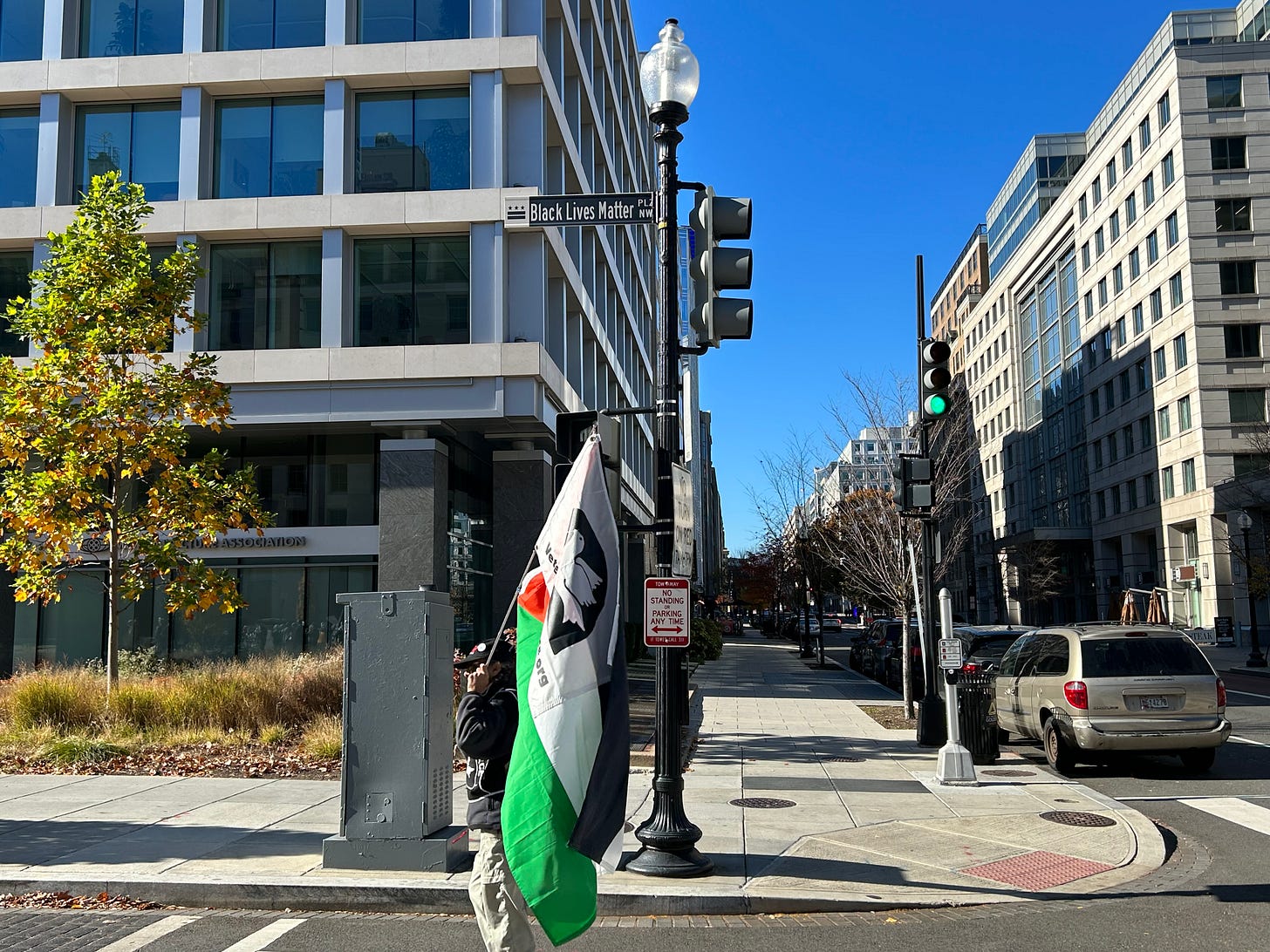
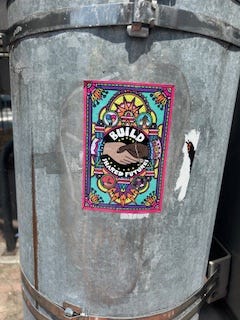
Reading this feels like a great big exhale. I relocated back to the DMV less than 2 months ago, after 9 years away, and I'm pretty stunned at the immediate care and kindness I've been met with. People are welcoming, curious, willing to connect me with organizations and invite me to things. Seems like people here are aware of their impact, in big and small ways. That's what home feels like, in these times, even though I'm a stranger in this place again. I feel home.
Thank you for sharing this, Deepa. I'm originally from that area originally and have found myself in tears and anxious multiple times this past month alone. When I ask family and friends up there how they are doing, they tell me they're fine but I suspect they just don't want me to worry. It's good to get a glimpse of the bigger picture. ☮️💖🤘🏼